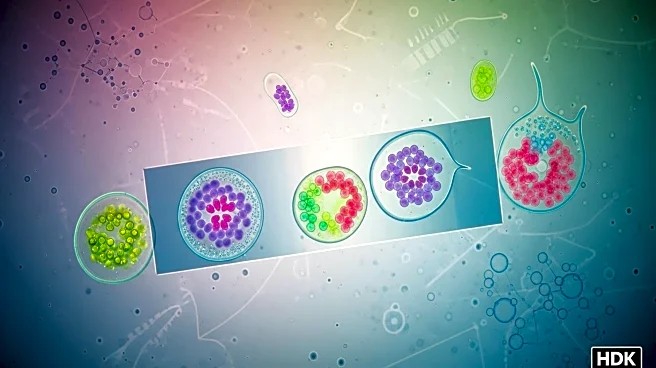What is the story about?
What's Happening?
Research into five simple organisms is providing insights into the evolution of multicellularity, a key development in the history of life on Earth. These organisms, including choanoflagellates and filastereans, exhibit characteristics that suggest the molecular toolkit for multicellularity existed before the first animals emerged. Studies led by evolutionary biologists Nicole King and Iñaki Ruiz-Trillo have expanded into a community of scientists developing these species into model organisms, offering a comparative approach to understanding the evolutionary paths leading to complex life forms.
Why It's Important?
The research on these simple organisms is crucial for understanding the origins of multicellularity, a fundamental transition that paved the way for the evolution of complex organisms, including humans. By studying these model organisms, scientists can gain insights into the genetic and environmental factors that facilitated this transition, potentially informing current biological and medical research. The findings may also influence evolutionary biology theories and contribute to the development of new biotechnological applications.
What's Next?
Continued research on these organisms is expected to uncover more details about the genetic and molecular mechanisms underlying multicellularity. Scientists may explore the potential applications of these findings in biotechnology and medicine, aiming to leverage the evolutionary insights for practical innovations.
Beyond the Headlines
The study of multicellularity evolution raises ethical considerations about genetic research and the manipulation of model organisms. It also prompts discussions on the cultural and philosophical implications of understanding life's origins and the interconnectedness of all living beings.















